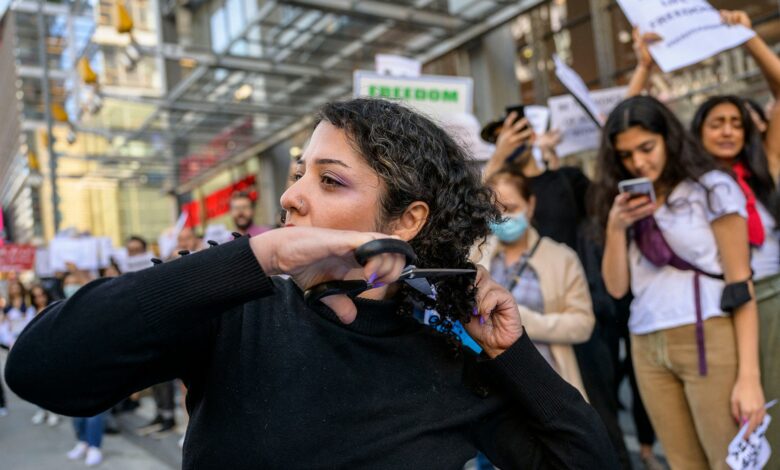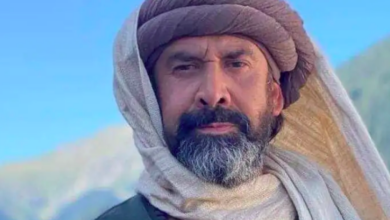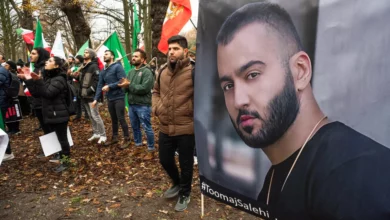
They were grieving for 36-year-old Javad Heydari, who was fatally shot last week at one of the anti-government protests that have gripped Iran.
Images like these have galvanized women across the world to join Iranian women protesting the death of 22-year-old Mahsa Amini. She died in hospital on September 16, three days after being pulled off the streets of Tehran by morality police and taken to a “re-education center” for lessons in modesty.
From the Middle East, Europe and across the United States, women around the globe have shown solidarity with Iranian women’s plight in rallies and demonstrations. Some have also cut or shaved their hair in public or while being filmed.
Now in their 12th day, protests have swept through more than 40 Iranian cities, including the capital Tehran. Iranian security forces have been cracking down on protesters, with hundreds arrested and at least 41 killed, according to state media. Some human rights organizations say the death toll is as high as 76. CNN cannot independently verify these figures.
So, why are women cutting their hair?
For many Iranian women, cutting off hair – a sign of beauty that is decreed to be hidden in the Islamic Republic – is a poignant form of protest.
“We want to show them that we don’t care about their standards, their definition of beauty or what they think that we should look like,” said 36-year-old Faezeh Afshan, an Iranian chemical engineer living in Bologna, Italy, who was filmed shaving off her hair. “It is to show that we are angry.”
Afshan attributes the practice of cutting off hair to historical cultural practices. “In our literature, cutting the hair is a symbol of mourning, and sometimes a symbol of protesting,” she told CNN. “If we can cut our hair to show that we are angry… we will do it.”
The practice is cited in Shahnameh, a 1,000-year-old Persian epic and a cultural mainstay in Iran written by Ferdowsi. Made of nearly 60,000 verses, the poem tells the stories of the kings of Persia and is one of the most important works of literature in the Persian language. In more than one instance through the epic work, hair is plucked in an act of mourning.
“Women cutting their hair is an ancient Persian tradition… when the fury is stronger than the power of the oppressor,” tweeted Wales-based writer and translator Shara Atashi. “The moment we have been waiting for has come. Politics fueled by poetry.”
In the Shahnameh, after the hero Siyavash is killed, his wife Farangis and the girls accompanying her cut their hair to protest injustice, Atashi told CNN.
The characters portrayed in the poem “are in everyday use as symbols and archetypes,” she said, adding that the poem has helped shape the identities of Iranians, Afghans and Tajiks for 1,000 years.
“But there is haircutting in the poetry of Hafez and Khaqani too, always about mourning and protests against injustice,” she said, referring to other Persian poets.
The practice is also common in other ancient cultures. The Epic of Gilgamesh, a 3,500-year-old poem from ancient Mesopotamia (modern-day Iraq) covers themes of grief and despair, where cutting or pulling out one’s hair is used to express anguish. The poem is considered to be one of the world’s oldest works of literature and is said to have influenced neighboring cultures.
Shima Babaei, an Iranian activist residing in Belgium who said she was arrested by Iran’s notorious morality police in 2018 for publicly removing her hijab as a sign of protest, told CNN that hair cutting had “historical meaning” for Iranians. Women who lose a direct relative would sometimes cut their hair as a sign of mourning and anger, she said.
“For us, Mahsa was our sister,” she said. “And so, in this way, we are protesting.”
Cutting hair, said Atashi, “is itself a ceremony of mourning to better expose the depth of suffering at the loss of a loved one.” And in today’s context, she adds, it is a sign of “protest against the killing of our people.”




